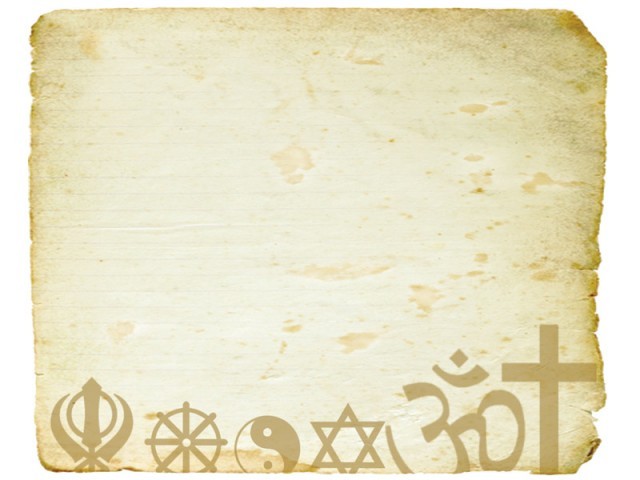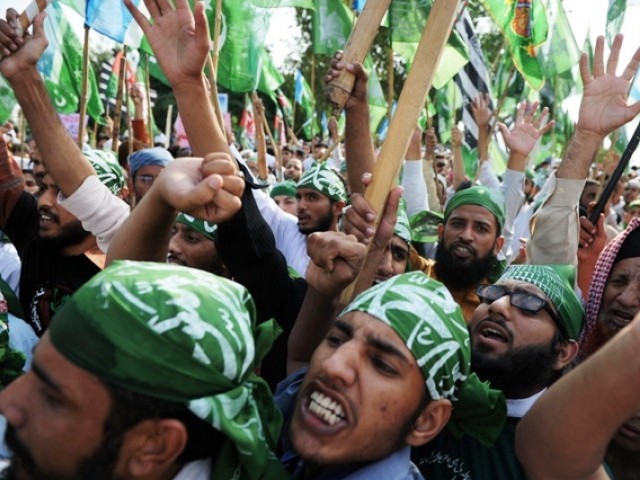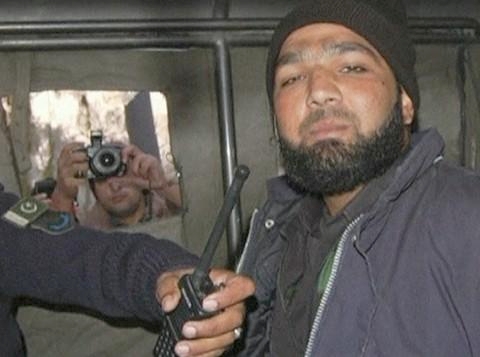Pakistan |
Minority rights: Silence, increasing intolerance make for another grim year
By Ali Usman
Published: December 29, 2011
Published: December 29, 2011
 Minority communities, activists suffered huge setbacks in 2011, beginning with the deaths of Taseer and Bhatti. DESIGN: FAIZAN DAWOOD |
LAHORE: Silence became the biggest atrocity against minorities in Pakistan this year. With the rise of the phenomenon of crushing the voice of minority advocates and increasing intolerance, 2011 remained a grim year for minorities in the country.
The year opened with the assassination of then Punjab governor Salmaan Taseer by his own security guard Mumtaz Qadri in Islamabad on January 4. Taseer was killed for speaking against the blasphemy law and raising a voice in favour of Aasia Bibi, a Christian woman sentenced to death on charges of blasphemy.
Minority rights activists believe that the incident was a huge setback as not only did they lose a supporter, but the PPP-led government also distanced itself from those who supported amendments in the blasphemy law.
What was equally tragic, if not more, was the fact that Qadri was hailed as a hero by many. “The assassin of the governor who happened to be his guard was garlanded by a group of people. This raised many questions about the protection of minorities,” said Executive Council member of Human Rights Commission of Pakistan (HRCP) Nadeem Anthony.
The second major setback followed closely, with the murder of late minister for minorities Shahbaz Bhatti on March 2 in Islamabad.
Bhatti also supported Aasia Bibi and had been playing a role in bringing amendments to the blasphemy law.
“The interior minister has said that the extremist group Sipah-e-Sahaba is behind his murder, yet they are still at large,” said Anthony.
Another tragic incident occurred in Mastung, Balochistan on September 20, when 29 people, mostly from the Hazara Shia community, were killed in two separate targeted incidents.
According to data gathered by The Express Tribune, from 1986 to 2011, at least 39 people booked under the blasphemy law have been killed before or during their trial. Of these, 18 were Christians, 16 were Muslims, two were Ahmadis, one was Hindu and two were unidentified.
Less killings, increasing Intolerance
“The situation of religious minorities in Pakistan progressively worsened,” stated the Working Group on Communities Vulnerable, established by the HRCP.
The group referred not only to violence against members of religious communities but also against the growing intolerance in society.
The group, in its report ‘Life at Risk’, noted that threats to religious minority communities have grown in direct proportion to a rise in militancy. “The factors for the rise in excesses against religious minority communities include not only the advance of militants and religious extremists but also the government’s failure to protect the basic human rights of these communities. No law can make anyone like a person, but if the law and the textbook label a citizen as inferior and another as superior, feelings of dislike increases,” the group maintained.
National Commission for Justice and Peace (NCJP) Executive Head Peter Jacob told The Express Tribune, “The number of discrimination cases against minorities in Pakistan in 2011 isn’t as much as it used to be in previous years; however the scale is larger this year. The phenomenon to silence the voices that speak for minorities is more dangerous and terrible and this is what happened this year”.
Positive steps for minorities
In 2011, several positive laws for minorities were also made. The Hindu Marriage Act has been submitted in the National Assembly and the government is considering making it a treasury bill, Jacob said.
The draft of Christian Marriage and Divorce Act has also been reviewed and is likely to be tabled in parliament.
“For the first time, four seats have been reserved in the Senate for minorities for which election will be held in March,” said Napoleon Qayyum, a Christian rights activist.
Way Forward
The working group further suggested that the quota reserved for minorities must be strictly observed. The group suggests that the lack of tolerance for religious minorities stems from textbooks, which should impart knowledge about all religions in Pakistan.
It suggests that all discriminatory laws against minorities should also be abolished and the National Commission for Minorities should be developed into a body that is independent and powerful.
Published in The Express Tribune, December 29th, 2011.
The year opened with the assassination of then Punjab governor Salmaan Taseer by his own security guard Mumtaz Qadri in Islamabad on January 4. Taseer was killed for speaking against the blasphemy law and raising a voice in favour of Aasia Bibi, a Christian woman sentenced to death on charges of blasphemy.
Minority rights activists believe that the incident was a huge setback as not only did they lose a supporter, but the PPP-led government also distanced itself from those who supported amendments in the blasphemy law.
What was equally tragic, if not more, was the fact that Qadri was hailed as a hero by many. “The assassin of the governor who happened to be his guard was garlanded by a group of people. This raised many questions about the protection of minorities,” said Executive Council member of Human Rights Commission of Pakistan (HRCP) Nadeem Anthony.
The second major setback followed closely, with the murder of late minister for minorities Shahbaz Bhatti on March 2 in Islamabad.
Bhatti also supported Aasia Bibi and had been playing a role in bringing amendments to the blasphemy law.
“The interior minister has said that the extremist group Sipah-e-Sahaba is behind his murder, yet they are still at large,” said Anthony.
Another tragic incident occurred in Mastung, Balochistan on September 20, when 29 people, mostly from the Hazara Shia community, were killed in two separate targeted incidents.
According to data gathered by The Express Tribune, from 1986 to 2011, at least 39 people booked under the blasphemy law have been killed before or during their trial. Of these, 18 were Christians, 16 were Muslims, two were Ahmadis, one was Hindu and two were unidentified.
Less killings, increasing Intolerance
“The situation of religious minorities in Pakistan progressively worsened,” stated the Working Group on Communities Vulnerable, established by the HRCP.
The group referred not only to violence against members of religious communities but also against the growing intolerance in society.
The group, in its report ‘Life at Risk’, noted that threats to religious minority communities have grown in direct proportion to a rise in militancy. “The factors for the rise in excesses against religious minority communities include not only the advance of militants and religious extremists but also the government’s failure to protect the basic human rights of these communities. No law can make anyone like a person, but if the law and the textbook label a citizen as inferior and another as superior, feelings of dislike increases,” the group maintained.
National Commission for Justice and Peace (NCJP) Executive Head Peter Jacob told The Express Tribune, “The number of discrimination cases against minorities in Pakistan in 2011 isn’t as much as it used to be in previous years; however the scale is larger this year. The phenomenon to silence the voices that speak for minorities is more dangerous and terrible and this is what happened this year”.
Positive steps for minorities
In 2011, several positive laws for minorities were also made. The Hindu Marriage Act has been submitted in the National Assembly and the government is considering making it a treasury bill, Jacob said.
The draft of Christian Marriage and Divorce Act has also been reviewed and is likely to be tabled in parliament.
“For the first time, four seats have been reserved in the Senate for minorities for which election will be held in March,” said Napoleon Qayyum, a Christian rights activist.
Way Forward
The working group further suggested that the quota reserved for minorities must be strictly observed. The group suggests that the lack of tolerance for religious minorities stems from textbooks, which should impart knowledge about all religions in Pakistan.
It suggests that all discriminatory laws against minorities should also be abolished and the National Commission for Minorities should be developed into a body that is independent and powerful.
Published in The Express Tribune, December 29th, 2011.
Copyrighted © 2011 The Express Tribune News Network
URL: http://tribune.com.pk/?p=313492
URL: http://tribune.com.pk/?p=313492























